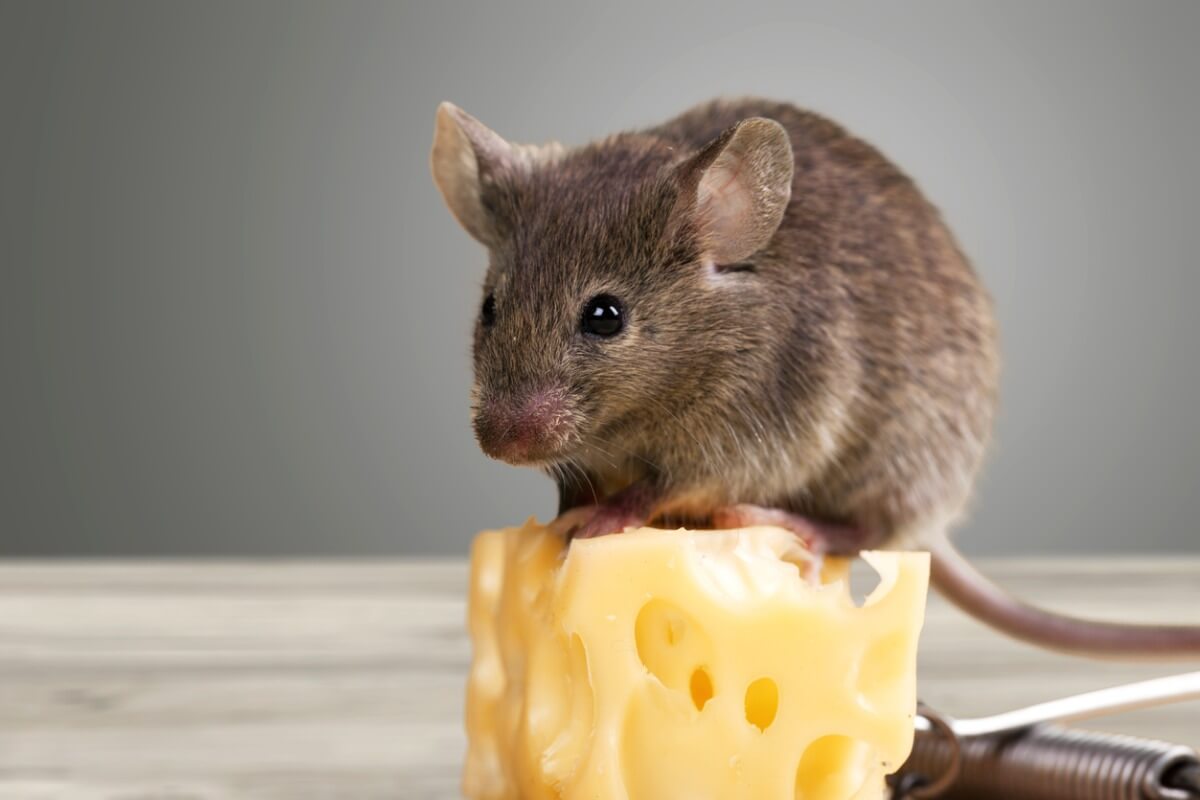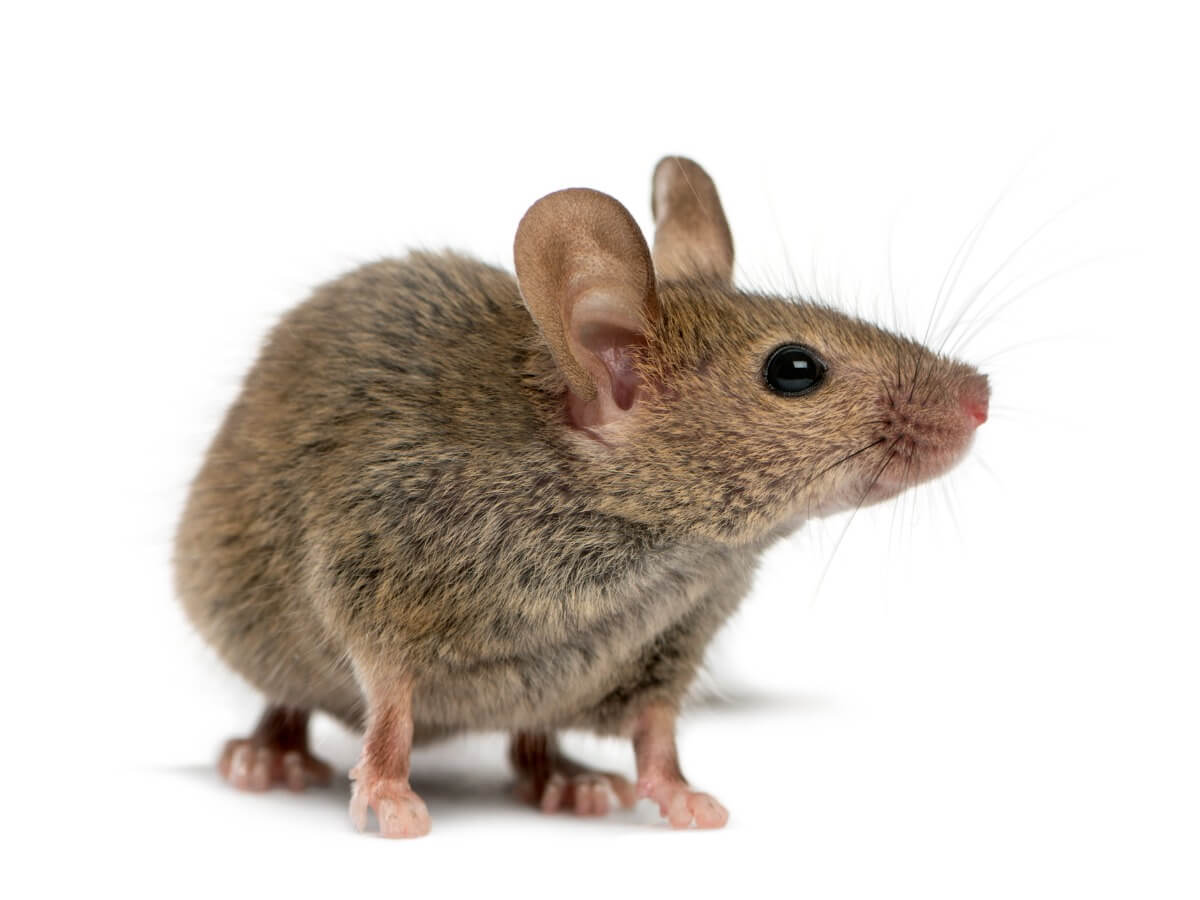Do Mice Like Cheese?


Written and verified by the biologist Samuel Sanchez
The image of a mouse eating a piece of cheese is etched all over our heads. From Mickey Mouse to Tom and Jerry, and many other cartoons and films, various media have perpetuated this belief over the years. But is it really true – do mice like cheese?
To answer this question, we must first focus on the exact definition of a mouse, and then explore its dietary choices (in captivity and in the home). As always, science brings us answers, so don’t miss this article!
The definition of a mouse
Before turning our attention to the dietary choices of these animals, we need to define them from a taxonomic point of view. A “mouse” is any rodent that has certain common physical characteristics: large ears, pointed snout, small size, very long bare tail, and prominent whiskers that grow from the base of the nasal area.
If we get technical, it’s possible to say that the only “true mice” are those that belong to the genus Mus (family Muridae). This taxon includes some 38 different species, among which we find the common field mouse Mus musculus. However, there are representatives of other genera (Peromyscus and Apodemus) that can also be referred to by this common name.
As rodents, mice have to be gnawing organic (or inorganic) matter continuously. They have very powerful, constantly growing incisors with several layers of enamel in their frontal area. If they weren’t filed down, the teeth would overgrow and end up piercing their skull (killing them in the process).
Rodents are the largest group of mammals in existence. They represent 40% of the species of the Mammalia class.

Do mice like cheese?
As much as we may love the idea that rodents love cheese, and we’ve believed it to be true, in reality, the claim is quite misguided. Mice don’t particularly like cheese at all, and prefer almost any other food to this dairy product if given the option. If they had nothing else to eat they would eat it, but this doesn’t mean they like it.
Why don’t rodents find this dairy product attractive? We summarize the possible reasons in the following list:
- Cheese isn’t a common food in the mouse environment: As much as some species are used to living in cities (such as Mus musculus), many others primarily inhabit forests and natural grasslands (such as Apodemus Sylvaticus). Cheese is something that no wild rodent would find on its own in the ecosystem.
- Cheese has a very strong smell: Mice have an excellent sense of smell, as they need this refined sense to communicate between specimens through the use of pheromones. This dairy product emits a very strong aroma that rodents may initially dislike.
- Mice have evolved without being exposed to cheese: Baby mice suckle from their mother’s breasts in their early life stages, but that doesn’t mean they’ll accept other types of milk. Goats or cows don’ produce compounds that are suitable for a rodent’s body.
All the above reasons are valid, but one explains the dislike of rodents when exposed to cheese more than others. As indicated by professionals, mice respond to the texture and smell of food very precisely. Since they aren’t exposed to cheese in its natural environment, they reject it unless they have no other choice.
What is this myth due to?
It isn’t known when the myth that mice like cheese was conceived, but it’s believed that in the Middle Ages this belief was already circulating at a cultural level in human society. We can only theorize, but some hypotheses seem plausible. As there were no refrigerators in these times, the coexistence of mice with the cheeses stored in the cellars was more than likely.
On the other hand, it’s also speculated that this association responds only to an artistic decision. It’s easier to depict a mouse eating a cheese ball than to draw it with rice, chickpeas or pieces of bread. For this reason, the artists may have chosen cheese as this rodent’s favorite food because it made them easier to represent in the past.
It’s possible that the belief was due to an erroneous association of concepts. Since there were mice and cheeses in the cellars, it seemed that the correlation was easily explained.
What do real mice eat?
Now we know that mice don’t like cheese, what foods do they like? Most of the species included in this group are omnivorous (they eat meat and vegetables), but they base their diet on the intake of seeds, young roots, and fallen fruits of plants. From time to time they also look for insect larvae, invertebrates, and meat scraps, but this isn’t the most common.
As a final curiosity, we can highlight that it has been proven that what mice like the most are sugary substances. Studies have detected that these rodents show signs of joy when ingesting solutions with dissolved sugar. This not only means that they look for this food for its caloric content, but that they enjoy it a lot on a sensory level when ingesting it.
In cities, mice will eat almost anything. However, in the natural environment they’re mostly herbivores.

As you’ve seen, mice don’t like cheese as much as you’ve been led to believe. They’ll eat it if they have nothing better to put in their mouths, but they certainly don’t like its taste and texture. We hope you’ve enjoyed this article, and you’ve seen that some myths and beliefs in human society are very poorly founded!
The image of a mouse eating a piece of cheese is etched all over our heads. From Mickey Mouse to Tom and Jerry, and many other cartoons and films, various media have perpetuated this belief over the years. But is it really true – do mice like cheese?
To answer this question, we must first focus on the exact definition of a mouse, and then explore its dietary choices (in captivity and in the home). As always, science brings us answers, so don’t miss this article!
The definition of a mouse
Before turning our attention to the dietary choices of these animals, we need to define them from a taxonomic point of view. A “mouse” is any rodent that has certain common physical characteristics: large ears, pointed snout, small size, very long bare tail, and prominent whiskers that grow from the base of the nasal area.
If we get technical, it’s possible to say that the only “true mice” are those that belong to the genus Mus (family Muridae). This taxon includes some 38 different species, among which we find the common field mouse Mus musculus. However, there are representatives of other genera (Peromyscus and Apodemus) that can also be referred to by this common name.
As rodents, mice have to be gnawing organic (or inorganic) matter continuously. They have very powerful, constantly growing incisors with several layers of enamel in their frontal area. If they weren’t filed down, the teeth would overgrow and end up piercing their skull (killing them in the process).
Rodents are the largest group of mammals in existence. They represent 40% of the species of the Mammalia class.

Do mice like cheese?
As much as we may love the idea that rodents love cheese, and we’ve believed it to be true, in reality, the claim is quite misguided. Mice don’t particularly like cheese at all, and prefer almost any other food to this dairy product if given the option. If they had nothing else to eat they would eat it, but this doesn’t mean they like it.
Why don’t rodents find this dairy product attractive? We summarize the possible reasons in the following list:
- Cheese isn’t a common food in the mouse environment: As much as some species are used to living in cities (such as Mus musculus), many others primarily inhabit forests and natural grasslands (such as Apodemus Sylvaticus). Cheese is something that no wild rodent would find on its own in the ecosystem.
- Cheese has a very strong smell: Mice have an excellent sense of smell, as they need this refined sense to communicate between specimens through the use of pheromones. This dairy product emits a very strong aroma that rodents may initially dislike.
- Mice have evolved without being exposed to cheese: Baby mice suckle from their mother’s breasts in their early life stages, but that doesn’t mean they’ll accept other types of milk. Goats or cows don’ produce compounds that are suitable for a rodent’s body.
All the above reasons are valid, but one explains the dislike of rodents when exposed to cheese more than others. As indicated by professionals, mice respond to the texture and smell of food very precisely. Since they aren’t exposed to cheese in its natural environment, they reject it unless they have no other choice.
What is this myth due to?
It isn’t known when the myth that mice like cheese was conceived, but it’s believed that in the Middle Ages this belief was already circulating at a cultural level in human society. We can only theorize, but some hypotheses seem plausible. As there were no refrigerators in these times, the coexistence of mice with the cheeses stored in the cellars was more than likely.
On the other hand, it’s also speculated that this association responds only to an artistic decision. It’s easier to depict a mouse eating a cheese ball than to draw it with rice, chickpeas or pieces of bread. For this reason, the artists may have chosen cheese as this rodent’s favorite food because it made them easier to represent in the past.
It’s possible that the belief was due to an erroneous association of concepts. Since there were mice and cheeses in the cellars, it seemed that the correlation was easily explained.
What do real mice eat?
Now we know that mice don’t like cheese, what foods do they like? Most of the species included in this group are omnivorous (they eat meat and vegetables), but they base their diet on the intake of seeds, young roots, and fallen fruits of plants. From time to time they also look for insect larvae, invertebrates, and meat scraps, but this isn’t the most common.
As a final curiosity, we can highlight that it has been proven that what mice like the most are sugary substances. Studies have detected that these rodents show signs of joy when ingesting solutions with dissolved sugar. This not only means that they look for this food for its caloric content, but that they enjoy it a lot on a sensory level when ingesting it.
In cities, mice will eat almost anything. However, in the natural environment they’re mostly herbivores.

As you’ve seen, mice don’t like cheese as much as you’ve been led to believe. They’ll eat it if they have nothing better to put in their mouths, but they certainly don’t like its taste and texture. We hope you’ve enjoyed this article, and you’ve seen that some myths and beliefs in human society are very poorly founded!
All cited sources were thoroughly reviewed by our team to ensure their quality, reliability, currency, and validity. The bibliography of this article was considered reliable and of academic or scientific accuracy.
- ¿Do mice really love cheese? How Stuff Works. Recogido a 14 de septiembre en https://animals.howstuffworks.com/animal-facts/do-mice-really-love-cheese.htm
- Mus musculus, Animal Diversity Web. Recogido a 14 de septiembre en https://animaldiversity.org/accounts/Mus_musculus/
- The face of a mouse reveals its emotions: study, Phys.org. Recogido a 14 de septiembre en https://phys.org/news/2020-04-mouse-reveals-emotions.html
- Mice hate cheese, new study reveals, Mail Online. Recogido a 14 de septiembre en https://www.dailymail.co.uk/news/article-403925/Mice-hate-cheese-new-study-reveals.html
This text is provided for informational purposes only and does not replace consultation with a professional. If in doubt, consult your specialist.








